| |

|
DeLoG NEWSLETTER
No. 50 – 06/2020
|
|

|
| |
|
|
| |
Dear Reader,
Welcome to issue No. 50 of the DeLoG Newsletter. As usual, this edition will showcase the Network’s and its members and partners most recent activities as well as provide an overview of current news stories, upcoming events and courses. In addition, we feature a selection of recent publications concerning DeLoG’s core topics, i.e.:
(1) local governance and decentralisation,
(2) fragility, post-conflict settings and migration in the context of DLG,
(3) fiscal decentralisation and local finance,
(4) the 2030 Agenda and localising the SDG's as well as
(5) urban and territorial governance.
This edition’s “In Profile” section features a joint interview with Claudia Buentjen and Hanif Rahemtulla from the Asian Development Bank. In their interview Claudia reflects on her work with the DeLoG Network and on past and future trends in the area of local governance and decentralisation. As a newcomer to the Network Hanif shares his expectations for becoming a member of the DeLoG family.
Over the last few months DeLoG and its partners have conducted a couple of webinars. In cooperation with VNG International the Network hosted a webinar on "Local Authorities and the Challenge of Urban Violence". In June this event was succeeded by a second webinar on "Enabling Local Governments to Tackle the COVID-19 Response and Recovery" with UNCDF and additional inputs by UNDP. For both webinars’ recordings are now available on the DeLoG Homepage. Up to date over 278 individuals have either participated in the webinars directly or watched them online. Make sure not to be left behind!
As in our last issue the COVID-19 crisis continues to keep the world on its toes. Therefore, our “News from our Members and Partners” as well as our “Additional News” sections are filled to the brim with information on COVID-19 related activities concerning response and recovery. That said, you will also find updates on newly launched tools, initiatives and learning series in the area of urban governance and city resilience.
Can’t get enough? Then feel invited to visit our DeLoG Website. Our “Knowledge” and “Events” sections provide you with access to even more new publications as well as current courses offered by our members and partners.
We hope you will enjoy this issue and encourage you to forward our Newsletter to other stakeholders from the Decentralisation and Local Governance community.
All the best and stay healthy!
Your DeLoG Team
Contact: info@delog.org |
|
|

© Claudia Buentjen & Hanif Rahemtulla
|
|
In-Profile – Claudia Buentjen and Hanif Rahemtulla, Asian Development Bank
Until May 2020, Claudia Buentjen worked as the Principal Public Management Specialist at the Asian Development Bank. Claudia is a macroeconomist / public sector reform specialist with more than 20 years of experience in project management, advisory services and research in more than ten developing countries in the Asia and Pacific region. Claudia holds a Dr. rer pol. in international economics and a Diploma in business administration and economics from the Ruhr-University Bochum, Germany.
Hanif Rahemtulla is Claudia’s successor at the Asian Development Bank and is stationed in Manila. Hanif specialises in public financial management, public investment management, fiscal decentralisation and service delivery in East Asia and the Pacific. He obtained his Doctoral degree from the University College London (UCL) and Postdoctoral from McGill University, Canada.
In their joint interview, Claudia shares her perspective on the role of the DeLoG Network for her work at ADB over the years and discusses past and future trends in terms of local governance and decentralisation. Hanif, in turn, reflects on the impact of COVID-19 for ADB’s work in the region and local governments in general. He shares his views on the relevance of online learning formats like DeLoG’s webinars as well as his expectations for working with the DeLoG Network.
|
| |
|
|
| |
|
|
|
|
|
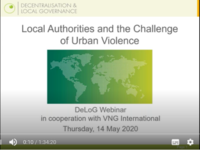
© DeLoG Secretariat
|
|
Recording and Summary Report of DeLoG and VNG's Webinar on "Local Authorities and the Challenge of Urban Violence" Now Available, Including Q&A Video by Mayor Óscar Escobar
On the 14th of May 2020, the DeLoG Secretariat and VNG International conducted a webinar on pathways for local authorities to deal with protracted urban violence. The inputs for the webinar were given by Juma Assiago, Coordinator for the Safer Cities Programme at UN-HABITAT, Óscar Escobar, Mayor of the City of Palmira in Colombia, Amita Gill, Local Governance Specialist with UNDP, Carlos Gimenez Romero, Director of DEMOSPAZ and Pilar Díaz, Deputy Councillor for International Relations at the Barcelona Provincial Council. Throughout the webinar the five speakers took stock of their organisation’s initiatives to curb urban violence and discussed policy recommendations for local authorities.
Overall the webinar was attended by 142 participants from around 36 countries. The recording and slides from the webinar, a follow-up video recorded by Óscar Escobar to address participants open questions as well as a summary report of all speaker's inputs are now available on DeLoG’s Homepage.
|
| |
|
|
| |
|
|
|
|
|
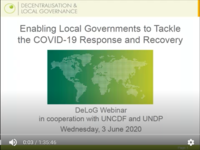
© DeLoG Secretariat
|
|
Recording of DeLoG and UNCDF’s Webinar on "Enabling Local Governments to Tackle the COVID-19 Response and Recovery" Now Available
On the 3rd of June 2020, the DeLoG Secretariat and UNCDF hosted a webinar on enabling local governments to tackle the COVID-19 response and recovery. The webinar’s inputs were provided by David Jackson, Director for Local Development Finance at UNCDF, Amita Gill, Local Governance Specialist at UNDP, Tehmina Akhtar, Deputy Director for Local Development Finance at UNCDF, Dmitry Pozhidaev, Decentralisation Advisor for Local Development Finance at UNCDF and Christel Alvergne, Team Leader for Local Development Finance at UNCDF. Both Pozhidaev and Alvergne provided concrete project examples from Senegal and Uganda, while Tehmina Akhtar's presentation focussed on the relevance of inclusion and gender for COVID-19 responses.
Overall the webinar was attended by 136 participants from 45 countries. The recording of the webinar is now available on DeLoG’s Homepage.
|
| |
|
|
| |
|
|
|
|
|
News from our Members and Partners
|
|
|
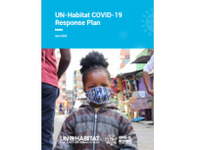
© UN-Habitat & Isaac Muasa
|
|
UN-Habitat COVID-19 Response Plan
Following the outbreak of COVID-19, UN-Habitat has received numerous requests from national and local governments seeking support regarding the development and implementation of preparation, prevention, response and recovery measures. In reaction to these appeals, UN-Habitat has developed a COVID-19 Policy and Programme Framework to provide guidance for global, regional and country-level action as well as a COVID-19 Response Plan for the city-level.
Drawing on their 40 years of experience with urban development the organisation, together with support from its large network of local partners, is assisting initiatives worldwide in areas such as housing, participatory slum upgrading, youth and gender initiatives, transport, water and sanitation, research and innovation. To ensure maximum impact UN-Habitat’s interventions place a special emphasis on:
- the support of local governments and community driven solutions in informal settlements,
- the provision of urban data for evidence-based mapping and knowledge and
- the mitigation of economic impact to ensure better conditions for recovery.
|
| |
|
|
| |
|
|
|
|
|

© UNCDF
|
|
UNCDF's COVID-19 Country Response Blogs
Since the outbreak of the COVID-19 crisis, local governments have been working hard on developing immediate responses to contain the spread of the virus and to guarantee continued access to public services. As first responders involved in citizen engagement, service delivery and the management of public space, they have proven their fundamental value for crisis response and recovery. To demonstrate appreciation for these measures and provide a source of inspiration, UNCDF has been using local government experiences with COVID-19 from Lao PDR, Bangladesh, Senegal, Somalia, Sweden and Uganda among others, for a daily blog series.
Besides showcasing the diversity of actions and solutions developed by local governments, the series underscores the necessity for financial support of local governments by national stakeholders.
|
| |
|
|
| |
|
|
|
|
|

© Local2030
|
|
Call for Contributions: UN Local2030 Spotlight Series on COVID-19 Response
To raise awareness for the work of local and regional governments concerning COVID-19 responses in the context of SDG implementation, the Local2030 Network recently launched a spotlight series featuring 2-minute recordings by city and regional representatives. The goal of the recordings is to demonstrate what key challenges local and regional governments are facing and what innovative solutions have been developed to achieve the goals of the 2030 Agenda against the backdrop of the COVID-19 pandemic. Each week a new topic is addressed.
Interested parties are invited to participate by uploading smartphone or camera videos to the Local2030 dropbox folder or by sharing their recordings via Twitter and using the hashtags #Local2030 and #SpotlightSeries. The submitted videos will be published on the social media channels of the Local2030 Network and used to encourage a global debate on COVID-19 and the crucial role of local government for overcoming the crisis.
|
| |
|
|
| |
|
|
|
|
|
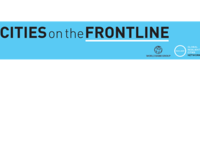
© Global Resilient Cities Network
|
|
Coronavirus Speaker Series: Sharing Knowledge to Respond with Resilience
Organised jointly by the Global Resilient Cities Network and the World Bank, the Coronavirus Speaker Series is dedicated toward sharing knowledge and best-corona-response-practices among cities in order to enhance the impact of cities’ crisis response and recovery measures. By addressing a number of diverse topics such as data-driven corona responses or the impact of the virus on life in informal settlements, as well as sharing experiences from all over the world with practitioners from different academic and professional backgrounds, this webinar series fundamentally supports cities in responding to the crisis in a multi-faceted and sustainable way, thus making sure that no one is left behind.
The recordings and presentations for the past 14 webinars have been made available online.
|
| |
|
|
| |
|
|
|
|
|
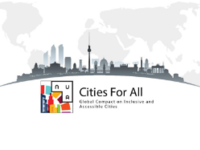
© Cities4All
|
|
Inclusive Urban Response and Recovery to COVID-19: Equity & Access in Times of Pandemic
Coordinated by World Enabled and supported by GIZ, the World Bank, UN-Habitat and UCLG among others, the C4ALL Global Initiative promotes the implementation of universal design and accessibility in urban development. With COVID-19 as a point of reference, the Network has recently launched a nine-episode webinar series focused on the inclusiveness and responsiveness of COVID-19 measures to persons with disabilities and older persons at the local level. Throughout the series particular attention is paid to the design and implementation of inclusive and accessible COVID-19 responses at the local level.
For maximum impact the webinar series includes a survey focussed on gathering comparative data to develop more inclusive evidence-based COVID-19 responses and urban policies for future emergency planning. Views and experiences on the matter can still be shared until the 21st of June 2020.
|
| |
|
|
| |
|
|
|
|
|
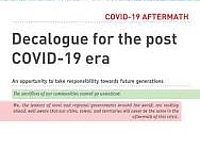
© UCLG
|
|
Decalogue for the Post-COVID-19 Aftermath
Taking the COVID-19 pandemic as a point of reference, UCLG has developed a decalogue for the post COVID-19 era. The 8-page document draws on UCLG’s and its members experiences and lessons learned from the crisis and outlines what steps need to be taken by local and regional governments to ensure that no one is left behind in future. Against this backdrop, the document is meant to serve as a political charter for UCLG’s international advocacy to guide its actions both in the immediate aftermath but also beyond the initial post-COVID-19 recovery phase. Among other topics the document places a special emphasis on guaranteeing access to public services, creating financial support packages and fostering democracy and generational equality.
|
| |
|
|
| |
|
|
|
|
|
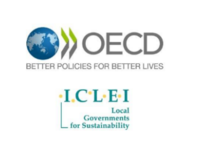
© OECD & ICLEI
|
|
Unlocking the Potential for Sustainable Urban Development and Local Economic Growth
In recognition of the increasing significance of public procurement to meet taxpayers’ demands for accountability and transparency, the OECD, in cooperation with ICLEI, has recently launched a new project focused on providing selected cities and regions with practical support on how to strategically use public procurement to meet their policy objectives and targets in terms of sustainable development and local economic growth. Open to ICLEI members, Global Lead City Network on Sustainable Procurement and Procura+ Participants as well as other ICLEI partner cities, the project will contribute to comparative data and statistics on public procurement in cities and regions, provide opportunities for peer-to-peer learning and evaluate local procurement performance.
Cities and regions interested in joining the project can reach out to Mark Hidson, Global Director at ICLEI’s Sustainable Procurement Centre (procurement@iclei.org) or Soo-Jin Kim, Head of the Urban Policies and Reviews Unit at the OECD (Soo-Jin.KIM@oecd.org).
|
| |
|
|
| |
|
|
|
|
|
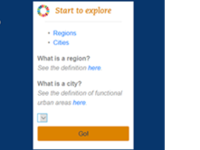
© OECD
|
|
En Route to Achieving the SDGs in Cities and Regions – An OECD Data and Visualisation Tool
According to estimates from the OECD, 105 out of 169 targets of the 2030 Agenda cannot be achieved without the involvement of local and regional governments. Therefore, the OECD, in line with its Programme on a Territorial Approach to the SDGs, advocates for a territorial approach to sustainable development based on linking local SDG monitoring, evaluation and implementation capacities to national policies.
In this context, the OECD has recently published a report titled “A Territorial Approach to the SDGs” and has developed an online tool to demonstrate the SDG progress of cities and regions. The tool allows communities to compare their performance and identify in what areas they need to increase their commitments to achieve their SDG targets. Developed by the OECD’s Centre for Entrepreneurship, SMEs, Regions & Cities the tool is meant to contribute to strengthening the exchange of knowledge between municipalities, reinforcing the accountability of local governments and raising awareness for local SDG progress and the 2030 Agenda.
|
| |
|
|
| |
|
|
|
|
|
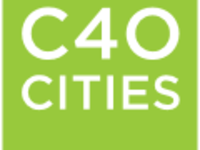
© C40 Cities
|
|
Global Mayors Launch COVID-19 Economic Recovery Task Force
The C40 Cities Climate Leadership Group, a global network of the world’s megacities committed to addressing climate change, recently launched a Global Mayors COVID-19 Recovery Task Force to improve the long-term urban resilience of cities. Dedicated toward minimising the economic impact of the current health crisis, the Task Force will focus its efforts on sustainable public investment activities to create a “new normal" for city economies, while also addressing issues of climate change at the local level. The Taskforce will serve as an exchange platform for mayors of the world’s largest cities to share best practices and important lessons learnt on fighting the pandemic. Their insights will be shared via policy papers, briefings and webinars.
To support the work of the Task Force as well as its other city partners, C40 has also launched a new COVID-19 Portal. The Portal provides cities with specific information, media and resources to guide their COVID-19 responses and recovery activities.
|
| |
|
|
| |
|
|
|
|
|

© RURITAGE
|
|
Share Innovative Actions to Strengthen Rural Communities’ Resilience
As a global pandemic COVID-19 has been devastating for cities and rural communities alike. Therefore, RURITAGE, an initiative focused on enhancing the heritage-driven regeneration of rural-areas, is currently looking for concrete information on how rural stakeholders have been addressing challenges posed by COVID-19. By calling on rural communities, individuals and other interested parties RURITAGE hopes to create a small database of resilience-related good practices in managing the COVID-19 crisis in rural areas. The collected actions, knowledge, skills, ideas and resources will be shared on RURITAGE’s project website.
To join the call and share your lessons-learnt, simply fill out the designated form.
|
| |
|
|
| |
|
|
|
|
|
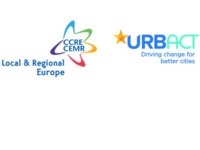
© CEMR & URBACT
|
|
Call for Action: Gender Equal Cities under COVID-19
Due to overrepresentation in sectors like health care, food retail and education, women face a much higher risk of being infected by the Coronavirus while at the same time carrying a much higher burden of upholding essential public services. At the same time, women are underrepresented in politics making it more difficult for them to contribute to crisis-management and response. Studies on previous economic shocks have uncovered that women’s income recovers slower from recessions than men’s. Staying at home does not appear to be a good alternative either, however. Reports of domestic abuse have increased by 30 percent since the pandemic’s outbreak. Based on these observations concerning the gender impacts of the COVID-19 crisis, URBACT and CEMR encourage stakeholders to use this momentum to advance real change and trigger discussions aimed at including women in decision-making processes at all levels of governance.
|
| |
|
|
| |
|
|
|
|
|
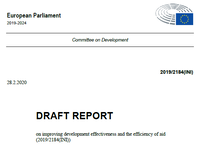
© European Parliament Development Committee
|
|
Draft Report on Improving Aid Effectiveness and the Efficiency of Aid: MEP Tomas Tobé Acknowledges Local Governments as Crucial Partners to Improve Aid Effectiveness
Local and regional governments are essential for achieving aid effectiveness. A recent draft report on improving aid effectiveness and its efficiency by Tomas Tobé, chair of the European Parliament Development Committee, reflects this conviction. In the report Tobé argues for a deeper involvement of local authorities in development cooperation endeavours to better catalyse aid effectiveness. To achieve the effective investment of development aid he recommends that the “EU’s toolbox” should be used in a more strategic way and that cooperation efforts with local governments must be intensified. In addition, he encourages the involvement of the private sector and calls for a better coordination with EU donors to improve development policies and make them more sustainable regarding impact.
|
| |
|
|
| |
|
|
|
|
|
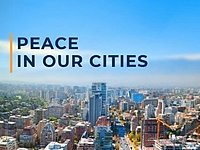
© Pathfinders
|
|
Peace In Our Cities Initiative
The trend of urban violence is being exacerbated by the growing number of people moving to megacities. The Pathfinders for Peaceful, Just and Inclusive Societies, an initiative of UN member states, international organisations, global partnerships and other partners committed to accelerating the delivery of the Agenda 2030 targets for peace, justice and inclusion (SDG 16+) estimate that in nine out of ten instances lethal violence does not take place within conflict zones, but rather within local urban settings. Based on this observation, Pathfinders is convinced that megacities are in need of a platform like the Peace in Our Cities Initiative to develop a more sustainable, participatory and evidence-based programme towards the implementation of the SDGs.
The Peace in Our Cities SDG16+ Action Pledge supports the coordination between cities participating in the initiative by providing a city-to-city collaboration framework. The framework contributes to the shared goal of creating peaceful cities and curbing urban violence.
|
| |
|
|
| |
|
|
|
|
|
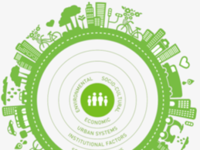
© SymbioCity
|
|
Launch of the New SymbioCity Website
Geared toward supporting local, regional and national governments in terms of the improvement of their urban planning capacities, the SymbioCity project has recently launched its new website.
By providing access to methods, processes and tools tailor-made for urban challenges like urban poverty and climate impacts, the SymbioCity Website supplies urban practitioners with the necessary knowledge to achieve the sustainable urban development of cities.
|
| |
|
|
| |
|
|
|
|
|
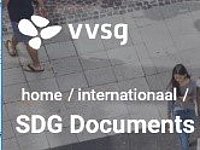
© VVSG
|
|
SDG Documents in Foreign Languages
As part of its SDG pilot project, the Belgian organisation VVSG has compiled a continuously growing collection of resource material concerning the implementation of the SDGs at the municipal level and with regard to the interconnection between international and national activities.
By providing access to these sources on their website, including publications, gameboards and tools, VVSG hopes to support governments and local initiatives with raising awareness, developing policies and political strategies as well as coordinating international cooperation efforts at different levels for SDG implementation. The sources are made available in English, Spanish and French.
|
| |
|
|
| |
|
|
|
|
|
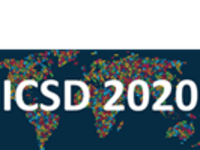
© ICSD
|
|
Virtual Event: International Conference on Sustainable Development 2020
When: 21 – 22 September 2020
-
Where: Online
-
Apply by: Registration to be opened in summer
-
Conducted for the 8th time in 2020 and for the first time online, the International Conference on Sustainable Development (ICSD) brings together representatives from academia, government, civil society, UN agencies and the private sector to discuss and exchange ideas on practical solutions to reach the Sustainable Development Goals.
Participation is free of charge.
|
| |
|
|
| |
|
|
|
|
|

© 9th European Conference on Sustainable Cities & Towns
|
|
Update on the 9th European Conference on Sustainable Cities & Towns
When: 30 September – 02 October 2020
-
Where: Has been converted into a virtual event
-
Apply by: Registration open
-
Due to the uncertainties around COVID-19, the 9th European Conference on Sustainable Cities & Towns has been converted into a virtual event. In its virtual format the conference will focus on providing local and regional leaders, European and international institutions and representatives from research, businesses and civil society with a forum to exchange ideas on how to create a more sustainable Europe in order to protect the planet and the life of future generations.
Participation is free of charge.
|
| |
|
|
| |
|
|
|
|
|

© Daring Cities
|
|
Virtual Event: Daring Cities 2020
When: 07 – 28 October 2020
-
Where: Online
-
Apply by: Registration open
-
In consideration of COVID-19 the Daring Cities Conference of 2020 will be hosted as a virtual event, including a mix of online high level and visionary speaking sessions, a series of informative workshops and personal networking opportunities. Over a timespan of three weeks, the conference will provide urban leaders with the opportunity to jointly discuss and tackle the challenges of climate change. The event will draw on the high-level negotiations taking place in Bonn in October and help set the course to COP26, Daring Cities 2021 and beyond.
Participation has been made free of charge.
|
| |
|
|
| |
|
|
|
|
|
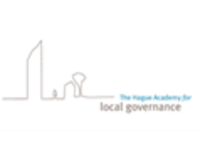
© The Hague Academy for Local Governance
|
|
Local Economic Development
When: 21 September – 02 October 2020
-
Where: The Hague, Netherlands
-
Apply by: 16 August 2020
|
| |
|
|
| |
|
|
|
|
|

© The Hague Academy for Local Governance
|
|
Conflict, Rule of Law and Local Security
When: 26 October - 06 November 2020
-
Where: The Hague, Netherlands
-
Apply by: 25 September 2020
|
| |
|
|
| |
|
|
|
|
|
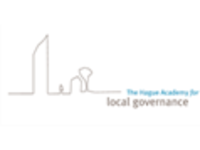
© The Hague Academy for Local Governance
|
|
Gender Responsive Governance
When: 16 - 27 November 2020
-
Where: The Hague, Netherlands
-
Apply by: 16 October 2020
|
| |
|
|
| |
|
|
|
|
|
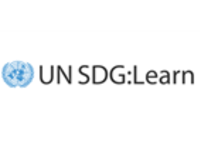
© Unitar & UN System Staff College
|
|
Human Rights in the Community
When: Self-Paced E-Learning
-
Where: Online
-
Apply by: Registration open
|
| |
|
|
| |
|
|
|
|
|
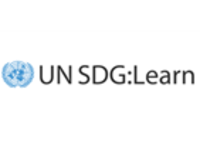
© Unitar & UN System Staff College
|
|
Urban Risk Reduction and Making Cities Resilient - Development of Local Disaster Risk Reduction Strategies
When: Self-Paced E-Learning
-
Where: Online
-
Apply by: Registration open
|
| |
|
|
| |
|
|
|
|
|

© Unitar & UN System Staff College
|
|
Policy Coherence for Sustainable Development
When: Self-Paced E-Learning
-
Where: Online
-
Apply by: Registration open
|
| |
|
|
| |
|
|
|
|
|
Knowledge
|
|
|
Local Governance and Decentralisation
|
|
|
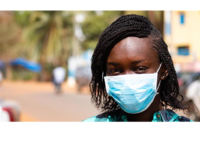
© World Bank Group
|
|
Why Do We Need Local Governments in Pandemics?
With local governments at the forefront of fighting the COVID-19 pandemic, the adequate assumption of responsibilities concerning service delivery by local and regional authorities has become more important than ever. Therefore, Serdar Yilmaz from the World Bank Group encourages all levels of government to adhere to the subsidiary principle. According to this principle concrete actions should be taken by the lowest level of government capable of doing so effectively. In support of this argument Yilmaz identifies (at least) three categories of responsibilities that can best be met by local authorities, including the provision of healthcare services, the execution of epidemiological investigations as well as the maintenance of social services and the economy.
Author: Serdar Yilmaz
Publisher: World Bank Group
Publication Date: 2020
Copyright: World Bank Group
|
| |
|
|
| |
|
|
|
|
|
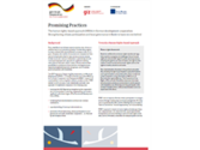
© GIZ
|
|
Promising Practice: Strengthening Citizen Participation and Local Governance in Benin to Leave No One Behind
In Benin considerable progress has been achieved with decentralisation processes in the last 15 years. However, the transfer of resources and competencies from central to local authorities for basic service provision remains limited, so do possibilities for citizen's participation in local decision-making processes, especially for marginalised persons and groups, such as women, youth and persons with disabilities. The GIZ Programme "Supporting Decentralisation and Municipal Development (PDDC)" – on behalf of the German Federal Ministry for Economic Cooperation and Development (BMZ) – supports 25 municipalities in enhancing their ability to provide services and aims to improve effective citizen participation in local governance. This Promising Practice describes the measures implemented by the project, its impact and lessons learned.
Publisher: GIZ
Publication Date: 2020
Copyright: GIZ
|
| |
|
|
| |
|
|
|
|
|
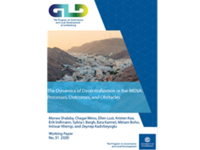
© The Program on Governance and Local Development at Gothenburg
|
|
The Dynamics of Decentralization in the MENA: Processes, Outcomes, and Obstacles
Part of a two-year research project on decentralisation in the MENA region with a focus on the country of Oman, this working paper summarises the discussions of decentralisation researchers from around the MENA region on the design of decentralisation reforms, obstacles, progress and outcomes. In addition, the paper draws on insights collected from Oman by way of a diverse multi-method research design to provide context on how and in what situations citizens from the MENA region turn to state versus non-state institutions. By contributing to the general discussion on decentralisation reforms, this working paper hopes to support the establishment of sustainable scholarly and policy-relevant networks and dialogues concerning these topics.
Publisher: Program on Governance and Local Development at Gothenburg
Publication Date: 2020
Copyright: Program on Governance and Local Development at Gothenburg
|
| |
|
|
| |
|
|
|
|
|
Fragility ● Post-conflict settings ● Migration
|
|
|

© Overseas Development Institute
|
|
The “Youth Burden” Needs a New Narrative and How We Respond to Covid-19 in Conflict Zones Can Change it
The “Youth Burden’’ refers to societies characterised by an above average share of young adults and children suffering from high unemployment and a lack of opportunities. By re-framing the “Youth Burden’’ as a chance for locally-grounded, effective and context sensitive responses in line with UN Resolution 2250 on Youth, Peace and Security, Melanie Pinet tries to underscore how young people can contribute to peace processes and crisis response and how they should be included in these processes at both the local and international level. Concrete examples from Mali, Cameroon, South Sudan and Syria are cited to provide context.
Author: Melanie Pinet
Publisher: Overseas Development Institute
Publication Date: 2020
Copyright: Overseas Development Institute
|
| |
|
|
| |
|
|
|
|
|
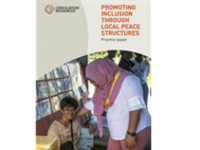
© Conciliation Resources
|
|
Promoting Inclusion Through Local Peace Structures
Inclusion is one of the essential principles included in international policy frameworks like the Sustainable Development Goals (see Goal 16). But how can inclusion be promoted in fragile and conflict-affected contexts? This report examines how and to what extent local peace structures in Kenya and the Philippines, like informal groups, committees and networks, influence peace processes by mediating local disputes, raising awareness and integrating marginalised groups. By drawing on these examples, the report carves out the important role of local peace structures for promoting inclusion and pays special attention to their ability to address both short-term security and long-term governance challenges.
Publisher: Conciliation Resources
Publication Date: 2020
Copyright: Conciliation Resources
|
| |
|
|
| |
|
|
|
|
|

© sashafolly / Shutterstock
|
|
How Reducing Inequality Will Make our Cities Safer
Based on a global analysis of the relationship between inequality and urban violence, this World Bank blog post advocates for the reduction of inequality and concentrated disadvantages. In order to improve opportunities across generations and populations, the blog proposes four lessons to reduce urban violence. These lessons are supported by the World Bank’s new “Strategy for Fragility, Conflict and Violence” from 2020 geared toward increasing the World Bank’s cooperation with urban partners in the area of conflict prevention.
Author: Robert Muggah and Sameh Wahba
Publication Date: 2020
Copyright: World Bank Group
|
| |
|
|
| |
|
|
|
|
|
Fiscal Decentralisation ● Local Finance
|
|
|
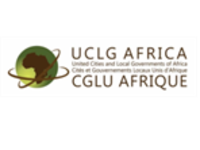
© UCLG AFRICA
|
|
UCLG Africa Report on the Impact of the Pandemic on the Financial Resources and Capital Expenditure of LRGs
Published by United Cities and Local Governments of Africa (UCLGA) in English and in French, this report tries to anticipate the financial impact of the COVID-19 pandemic on capital expenditures of local and regional governments. In this context the report recommends re-examining the financial relations between local and national governments to identify steps toward stabilising local economies. In order to improve crisis response, the report suggests investing in decentralisation processes to get a better understanding of local realities and enable more tailor-made local approaches. The report’s overall aim is to contribute to urban resilience and support the creation of stronger (financial) institutions.
Publisher: UCLG Africa
Publication Date: 2020
Copyright : UCLG Africa
|
| |
|
|
| |
|
|
|
|
|
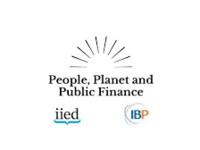
© IIED
|
|
Podcast: Four Countries Working Together to Get Climate Finance to the Local Level
IIED’s “People, Planet and Public Finance” podcast addresses questions such as “How can countries ”green” their budget?” or “How much do people spend in reaction to climate change?”. This particular episode examines how NGOs and governments in Senegal, Mali, Tanzania and Kenya cooperate to get and improve their access to local sustainable climate investments. During the podcast newly developed processes and mechanisms for climate financing of IIED and IED Afrique in Senegal are presented.
Speakers: Emilie Beauchamp and Bara Gueye
Producer: International Institute for Environment and Development
Publication Date: 2020
Copyright: International Institute for Environment and Development
|
| |
|
|
| |
|
|
|
|
|
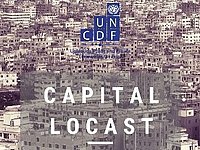
© UN Capital Development Fund
|
|
Capital Locast: Talking Local, Globally – A Podcast by UNCDF
By providing innovative local financing solutions for the world’s 47 least developed countries (LDCs), the UN Capital Development Fund (UNCDF) aims to bridge gaps in development finance architecture at the local level. Financial inclusion, local development finance and an LDCs investment platform are part of UNCDF’s main instruments to contribute and foster a sustainable world worth living in. Through weekly episodes the first season of this podcast provides insights on UNCDF’s economic analyses and policy agenda in terms of a financial ecosystem that addresses the needs of cities and local governments.
Producer: UN Capital Development Fund
Publication Date: 2020
Copyright: United Nations
|
| |
|
|
| |
|
|
|
|
|
2030 Agenda ● Localising the SDGs
|
|
|
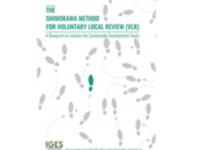
© Institute for Global Environmental Strategies
|
|
The Shimokawa Method for Voluntary Local Reviews
What does the small north-Japanese town of Shimokawa have to do with “Voluntary Local Reviews” (VLR) you may ask. The answer is simple. Despite its limited budget and geographical isolation, Shimokawa has been able to successfully develop and implement a rigorous monitoring, review and follow-up process for the SDGs at the local level. This clear-cut handbook provides fruitful insights into their ten-step review process (like how to gather data or establish a platform) and provides local and regional governments with a perfect example on how to contribute to the attainment of the 2030 Agenda at the local level by use of the “Shimokawa Method’’.
Author: Hirotaka Koike, Fernando Ortiz-Moya, Yatsuka Kataoka & Junichi Fujino
Publisher: Institute for Global Environmental Strategies
Publication Date: 2020
Copyright: Institute for Global Environmental Strategies
|
| |
|
|
| |
|
|
|
|
|
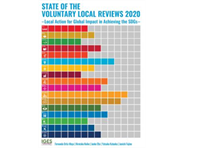
© Institute for Global Environmental Strategies
|
|
State of the Voluntary Local Reviews 2020: Local Action for Global Impact in Achieving the SDGs
In order to track their progress in implementing the SDGs and plan for next steps many local and regional governments conduct Voluntary Local Reviews (VLRs). This report by the Institute for Global Environmental Strategies summarises their efforts and highlights different SDG initiatives from around the world. While the first part of the report focuses on inclusive processes in line with the SDG’s motto of leaving no one behind, the second part presents efforts to link local review processes to the national level and Voluntary National Reviews (VNR). This report serves as a blueprint for local stakeholders to better understand obstacles and challenges for reaching the SDGs.
Author: Fernando Ortiz-Moya, Hirotaka Koike, Junko Ota, Yatsuka Kataoka and Junichi Fujino
Publisher: Institute for Global Environmental Strategies
Publication Date: 2020
Copyright: Institute for Global Environmental Strategies
|
| |
|
|
| |
|
|
|
|
|
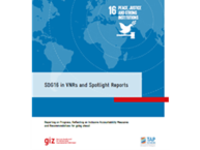
© GIZ
|
|
SDG16 in VNRs and Spotlight Reports
SDG 16 represents a necessary pre-requisite for achieving the highly ambitious Sustainable Development Goals. In this report titled “SDG16 in VNRs and Spotlight Reports”, Pytrik Oosterhof analyses the dual role of this goal as an outcome as well as a pre-condition for sustainable development. By comparing perspectives shared by governments and civil society in their Spotlight and VNR reports presented at the High-Level Political Forum, she carves out a wide spectrum of approaches already used to implement SDG 16. Besides summarising good practices, lessons learnt as well as key recommendations, the report recommends broadening stakeholder engagement in order to turn SDG 16 into a reality by 2030.
Author: Pytrik Oosterhof
Publisher: GIZ and the TAP Network
Publication Date: 2020
Copyright: GIZ
|
| |
|
|
| |
|
|
|
|
|
Urban and Territorial Governance
|
|
|
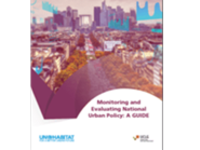
© UN-Habitat
|
|
Monitoring and Evaluating National Urban Policy: A Guide
The effective implementation of National Urban Policy (NUP) requires good monitoring and evaluation in order to be able to appropriately judge successes and failures. This Guide by UN-Habitat provides a programmatic approach for establishing a database to monitor objectives, outputs and outcomes. A greater involvement of local and regional actors, as well as linking efforts to the global level are both highly recommended.
Publisher: UN-Habitat
Publication Date: 2020
Copyright: UN-Habitat
|
| |
|
|
| |
|
|
|
|
|
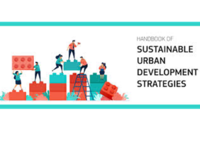
© European Commission’s Joint Research Centre
|
|
Sustainable Urban Development Handbook
Recognising the importance of local and regional governments for sustainable urban development (SUD), this Handbook by the EU’s Joint Research Centre (JRC) presents a clear and consistent account of the EU’s policies in this field. By putting forth guidelines for the development of a flexible and adaptable policy learning tool, it provides a systematic framework for implementing integrated and place-based urban strategies. Moreover, the Handbook summarises key obstacles to SDG implementation at the local level, thus providing local authorities and other relevant stakeholders with guidance on how to advance and improve SUD efforts.
Publisher: The EU's JRC
Publication Date: 2020
Copyright: The EU's JRC
|
| |
|
|
| |
|
|
|
|
|
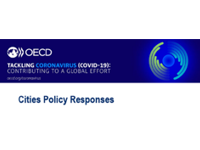
© OECD
|
|
OECD: Cities Policy Responses
With its devastating impact on local communities COVID-19 may turn into one of the greatest economic, financial and social shocks of our time. By trying to contain the virus and providing essential services to residents, cities are at the forefront of the pandemic. This policy note describes the different COVID-19 measures taken by cities and analyses economic effects, as well as factors like density, resilience and collaboration with national governments. In addition, it carves out the different strategies implemented by cities to exit the lockdown and draws on insightful lessons learnt to provide guidance on how to improve urban resilience in future.
Publisher: OECD
Publication Date: 2020
Copyright: OECD |
| |
|
|
| |
|
|
|
|
| |

|
|
|
| |
|
|
| |
For access to even more inspiring publications on - local governance and decentralisation,
- fragility, post-conflict settings and migration in the context of DLG,
- fiscal decentralisation and local finance,
- the 2030 Agenda and localising the SDGs or
- urban and territorial governance
make sure to visit the "Knowledge Section" of our DeLoG Website - Updated regulary!
|
|
|








































